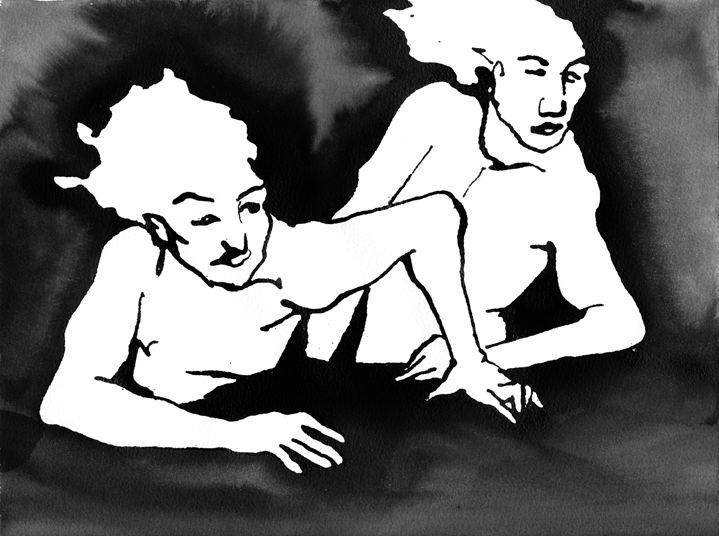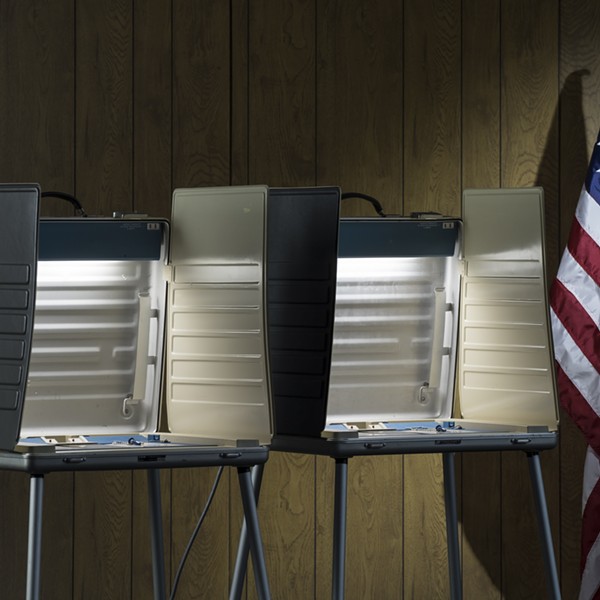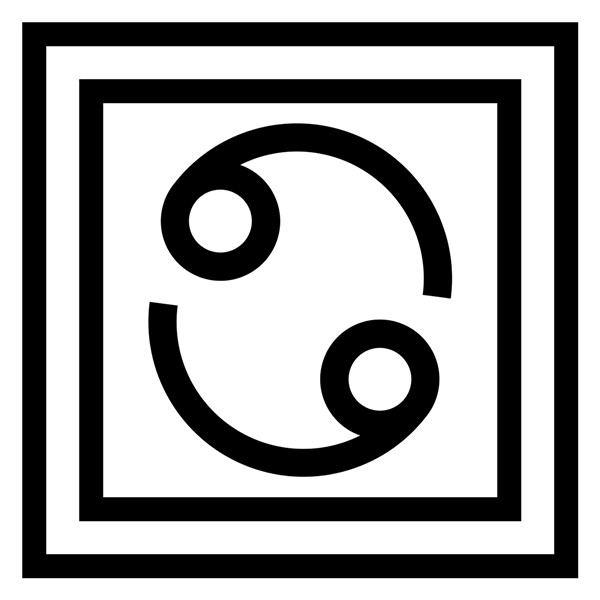My car got booted for unpaid parking tickets the other day, so naturally I went to Kingston City Hall to clear the matter up. Because the governments and the banks are in the process of stealing our money, I had some cash on hand (my accountant suggested this). The city government where I live doesn’t take checks or credit cards. I am pretty good at fighting parking tickets, but I didn’t have time this summer.
When I showed up at the window in the city comptroller’s office, they already knew my name. “Are you Eric?” The personal treatment was disconcerting. I said hello and then politely added, “I just have a few questions.”
“Okay,” said the clerk.
“Do I have a right to plead not guilty?”
“No,” said the clerk.
“Do I have a right to an attorney?”
“No.”
“Do I have a right to a trial?”
“No.”
Then another (apparently senior) clerk added, “If it gets to this point where your car is booted, you’ve lost all your rights. Your tickets are past 45 days, notices have been sent out, you had a chance to do everything you just talked about doing, and you haven’t done it.”
The legal logic here is: We arrested you (or at least your car), so therefore you’re guilty. I proposed an alternate scenario, that I learned in school: innocent until proven guilty. Even if you rob a bank and go on the lam, you still have the right to a lawyer and a trial if you’re caught five years later. One lady laughed; the other reiterated that I used to have that right, but because I ignored the tickets for a while, I had lost it.
“There are a lot of dead patriots buried by the Old Dutch Church who gave their lives so we could have our rights,” I said. The women were silent for a somber moment. I paid cash under protest, took my paperwork, and walked away. I felt that I had got my money’s worth having been told by a city official, openly and notoriously, that I had no rights.
What is the truth, and does it matter? I say it does matter, if we value our freedom. I don’t mean to make a parking meter a bigger deal than it is, but most people don’t think that federal wiretaps or the “free-speech zones” that are set up to contain protesters are an especially big deal either.
We were all told we live in a country where we have rights, and where we send people abroad supposedly to die for our freedom. I’ve heard this about a thousand times since September 11, 2001. We have rights for a reason. For example, what if my car had been booted by mistake? Would I have to admit that I was wrong and pay the fine with no further recourse in order to have the boot removed? Then it doesn’t seem like such a small matter; we all use our car to get to work, buy food, and get the kids to school.
When my local city councilman, Tom Hoffay, came into my office at Dominick’s Cafe a few days later, I asked him what someone would do in that case. He said they would have to file what’s called an Article 78 proceeding, a lawsuit compelling the city to follow state law. Out of politeness, I didn’t laugh. I may be the only person outside the legal community and state government who even knows what that is. It’s not the kind of thing you can do during lunch.
We wonder why government so often acts on its own behalf, or those of its biggest constituents (lately, the banks) and ignores the needs of the people who created it and pay for it. We wonder how we get taxed and taxed and have so little to show for it. We wonder why people can attack nationalized health care as wasteful when they support nationalizing the banks for many times the cost. We need to look no further than the refusal of most people, most as in the majority, to be aware and to get involved in their communities.
I have seen numerous instances where the moment actual citizens get involved and show up at city hall or at the state legislature or a student association meeting, and mysteriously the right thing happens. All of us in the past decade seen how, when we ignore our rights, we supposedly lose them—just like the clerk at City Hall proposed. In that sense, she is correct. If you don’t exercise your rights, you lose them.
For example, when we didn’t protest a stolen presidential election in 2000, we had another one stolen in 2004. If you recall, Al Gore got more popular votes in ’00 and yet Bush took office. We know the rules about the Electoral College, but personally that is something that I never thought possible, though I’d considered it many times. Bush taking office was like putting the boot on the White House; he had it, so he was right.
The election fraud issue is something that’s not being talked about enough. I keep hearing people say that if Barack Obama gets 60 percent of the popular vote, we’re safe—then they can’t steal the election. Remember, the current president, who mainly presides over the disaster area the federal government and national economy have become, lost the popular vote. Now we need 60 percent to win? I think this shows you how slanted the playing field is.
Obviously, voting is not enough. The problem with voting is not that we do it or don’t do it, but rather that we think it’s enough; we think it’s sufficient participation in society. It is supposedly more than a symbolic gesture, but it is starting to seem like going to church.
What is enough? Someone I know recently spouted out the idea that the American public is defined by what it does not know. Since you are someone who is reading something, you personally may be defined by your curiosity and your concern about the issues of our very strange time in history. However, knowledge of the world is entirely abstract if it does not correspond to some inner knowledge; a sense of self and a corresponding sense of ethics.
We’re transitioning into the beginning of a crucial era, in fact we’re meeting this thing we’ve been calling 2012. In addition to a major change in the Mayan calendar (the end of the 13th baktun) in that year, the planetary astrology—beginning this month, with Pluto entering Capricorn—builds to a crescendo, complete with social upheavals that will make the Sixties feel like a rehearsal for the high school pageant.
Change is not comfortable for most people. We would rather have things be just so, and we’ll do almost anything to keep them that way, including deny our own growth, health, liberty, and sanity. We will stay with people who we don’t love or barely care about. We will keep jobs we hate. Most of all, we will refuse to face our pain. We’ll do all of this for the illusion of stability. Or maybe it’s preserving the illusion of stability that protects us from the scourge of freedom.
As society goes into its gyrations and birth contractions and we are compelled to recreate ourselves as we explore our relationship to the whole, you can be sure that many will be struggling with an adaptation process, and with what feels like an inordinate amount of growth. We will not have much time for regrets. We will not have time to ponder whether we’re ready for a new way of relating to one another, be it through community, new models of relationship, or more functional ideas of family.
There will be many people who feel that they are retarded because others much younger have done some of the work, and figured out how to stand on their own and as part of a group.
Those of us in the helping professions are going to have plenty on our hands, and our own healing process will accelerate as a result. Most of us already have plenty to do, and we need to start organizing support networks so that we can keep the sanity we’ve worked so hard to gain, and not get dragged down by so many unusual demands on our attention.
I have suggested on a number of occasions that if you want to see what material you’re going to be working with during Pluto in Capricorn, study the era from late 2001 through 2005 and investigate what that tells you. Decide what you accomplished, what you did not accomplish and most of all, what you learned.
And please consider this equation, from my article “How To Be Your Own Lover,” that deconstructs guilt—this emotion being the lifeblood of all oppression, inner and outer.
This brief segment was co-written with Joseph Trusso, my longtime holistic therapist and mentor. In taking on Pluto in Capricorn, we will need to challenge and overthrow the guilt of our families, and of our society, which we carry internally. We carry it as guilt about sex, freedom, happiness, and even love; I believe that guilt is the essence of what Freud called Thanatos, the death urge. It is what is paralyzing us against standing up against injustice, against the lack of emotional freedom we feel, and ultimately it’s what’s going to mess up our children. It is up to us, you and me, to break the cycle.
“Fritz and Laura Perls, early pioneers of Gestalt therapy, taught that guilt is resentment turned against itself. Generally speaking, children, being the powerful yet powerless little critters they are, take upon themselves the notion of “fault and blame.” They cannot imagine adults (who are personifications of the gods and goddesses) making an error. If they do, it’s still the “fault” of the child. “If only I would’ve done this or that, Daddy wouldn’t hit me.” “If I were quieter, Mommy wouldn’t drink.” And so on. Since they are at “fault,” they are “guilty,” and since they cannot rage against the adults very successfully or have a real impact on the direction of events, they turn the resentment at being pruned, modified, corrected, disciplined, strongly directed or dictated to, back at themselves.
“That is guilt. It’s fair to say that our lives, so often filled with the idea that we cannot influence the direction of events, so often caught in the web of control, of bosses, of taxes, of children, and, yes, of our sexual relationships, are often holographic copies of these original crushing relationships with parents and teachers. Yet as adults, the programming, the patterns, are contained within us. They are internalized. Check it out: Do we have especially creative jobs? Dare we say what we feel, go where we want, be who we are or have sex with who we desire? Or are we pruned, modified, dictated to, and denied out of existence by our own self-control?”
That is the question, and if we can ask it honestly we may find the source of our real human wealth as a bunch of bankers and unelected bureaucrats try to steal the rest.



















